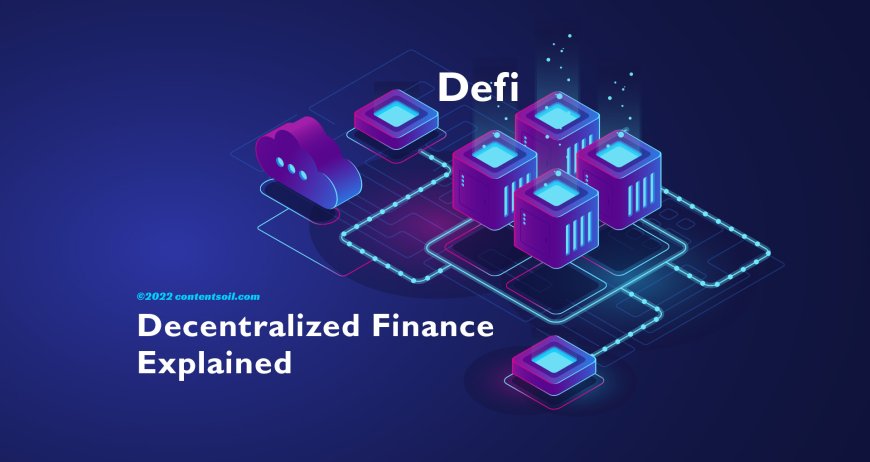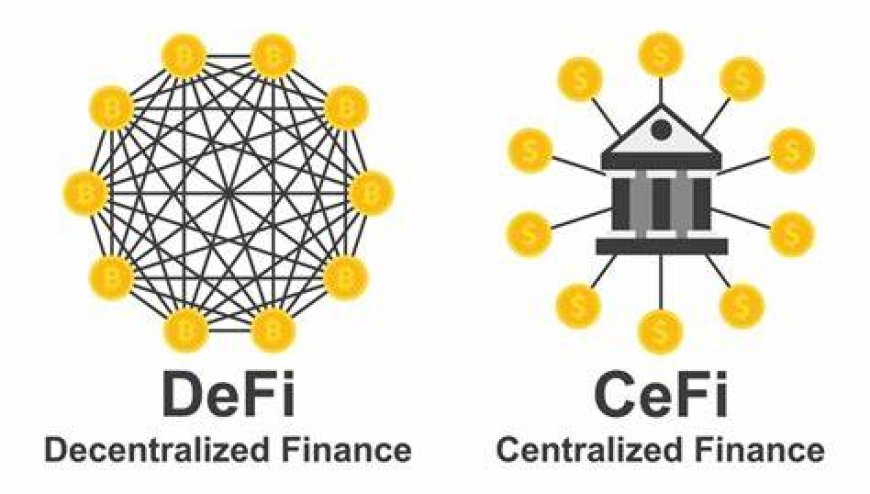In today’s rapidly evolving world, technology isn’t just about innovation—it’s about shaping the future of freedom. For libertarians, who believe in minimal government intervention and maximum personal freedom, the advances in technology offer unprecedented opportunities to challenge traditional structures of power. From blockchain to decentralized finance (DeFi), and artificial intelligence (AI), technology is empowering individuals, fostering innovation, and creating systems that operate without the need for state oversight.
India, with its vast potential for growth and development, stands at a unique crossroads. How can it leverage these technological advances to create a society that is freer, more prosperous, and aligned with libertarian principles? This article will explore how these technologies intersect with libertarian values and what India can learn from them.
Blockchain: A Transparent and Efficient Future

At the core of many libertarian ideologies is the belief in transparency, accountability, and decentralization—values that are also embodied in blockchain technology. Blockchain, a decentralized and distributed digital ledger, allows transactions to be recorded transparently without the need for a central authority or intermediary.
How blockchain aligns with libertarian values:
-
Decentralization: Blockchain technology removes the need for centralized systems. It allows for peer-to-peer transactions without the interference of banks, governments, or other centralized authorities. This decentralization means individuals can directly engage in economic transactions and governance, which is a fundamental libertarian principle.
-
Transparency: Blockchain’s immutable and transparent nature ensures that transactions are publicly recorded and cannot be altered once confirmed. This eliminates the need for regulatory bodies or auditors, as the system itself guarantees trust and authenticity—aligning with the libertarian value of voluntary, self-regulated interactions.
-
Privacy: In a world where governments and corporations constantly track personal data, blockchain can offer enhanced privacy through encryption and pseudonymous transactions. Individuals can maintain their personal autonomy, making it a key tool for those advocating for less government surveillance.
In India, blockchain has the potential to revolutionize multiple sectors—from banking and finance to healthcare and supply chain management. By using blockchain for record-keeping and transparent transactions, India could create a more efficient, corruption-free system where individuals have more control over their data and assets.
Decentralized Finance (DeFi): Financial Freedom for All

Traditional financial systems are often controlled by centralized institutions like banks and governments. However, with the rise of decentralized finance (DeFi), individuals no longer need to rely on these institutions to access financial services. DeFi allows people to lend, borrow, trade, and invest through decentralized applications (dApps) on blockchain networks.
How DeFi embodies libertarian principles:

-
Empowering the Individual: In a DeFi system, anyone with an internet connection can access financial services without needing a bank account, credit score, or government authorization. This directly challenges the centralized financial structures that restrict access and limits opportunities for many, especially in developing countries like India.
-
Low Fees and Global Reach: DeFi platforms eliminate intermediaries, reducing transaction fees and enabling international transactions without the need for currency conversion or bank charges. This open access allows individuals across the world to participate in the global economy without state-imposed restrictions.
-
Security and Autonomy: DeFi operates on smart contracts, which are self-executing contracts with the terms directly written into code. This reduces the need for legal intermediaries and ensures that financial transactions are completed securely and without delay. Individuals have full control over their finances, reducing the dependence on banks or government-backed currencies.
For India, DeFi presents a revolutionary opportunity to include more people in the financial system. With a large unbanked population, DeFi could offer a decentralized and inclusive alternative to the formal banking system, giving citizens control over their wealth and financial futures.
Artificial Intelligence (AI): Innovation without Boundaries

Artificial intelligence has the potential to revolutionize every industry, from healthcare and education to agriculture and entertainment. For libertarians, the key appeal of AI lies in its capacity to remove the need for government intervention in many sectors. AI can streamline processes, reduce inefficiencies, and increase access to information, while remaining free from state control.
How AI aligns with libertarian values:
-
Empowering Individuals with Knowledge: AI-powered platforms can provide people with personalized knowledge and solutions without the need for a state-run education or healthcare system. For example, AI can be used to deliver tailored educational content or medical advice, making these services accessible to people regardless of their geographic location or socio-economic status.
-
Reducing Bureaucracy: AI has the ability to automate tasks that are traditionally performed by government officials or employees in a bureaucratic system. From paperwork and processing claims to regulating industries, AI can reduce inefficiency and allow individuals to bypass the cumbersome processes that often limit personal freedom.
-
Promoting Innovation: AI facilitates the rapid development of new products and services. The technology behind AI, such as machine learning and neural networks, encourages private sector innovation. By removing bureaucratic hurdles, AI enables individuals and businesses to explore creative solutions to complex problems without waiting for government approval.
In India, AI can play a pivotal role in improving education, healthcare, agriculture, and public services. By utilizing AI to reduce governmental control over these industries, India could increase productivity and innovation while fostering an environment where individuals and businesses thrive.
Challenges and Policy Considerations
While these technologies hold immense promise, they also come with challenges that libertarians must address to ensure they align with their core values. Technology, when misused or over-regulated, can become a tool of state control rather than liberation.
-
Privacy Concerns: As blockchain, DeFi, and AI become more integrated into daily life, privacy concerns may arise. Governments may attempt to regulate or control these technologies in the name of national security or public safety. Libertarians must advocate for robust privacy protections to ensure these tools remain aligned with their principles of freedom.
-
Preventing Monopolies: As technology giants continue to dominate the tech space, there is a risk that the very systems designed to decentralize power could become monopolized. For example, large corporations might gain control of blockchain or AI technologies, undermining the decentralized principles that make them valuable. Libertarians must push for fair and open markets that prevent such monopolies from forming.
-
Balancing Innovation with Regulation: While technology should be allowed to flourish without undue government regulation, there is a need for minimal oversight to ensure that innovations do not harm individuals or society. Libertarians must work towards finding a balance between protecting personal freedoms and ensuring that technologies are used ethically and responsibly.
India's Path Forward: Leveraging Technology for Freedom
India, as one of the world’s fastest-growing economies, stands in a unique position to harness the potential of blockchain, DeFi, and AI to create a freer, more prosperous society. By embracing these technologies, India could decentralize power, promote individual freedoms, and reduce reliance on a cumbersome and often inefficient state apparatus. These technologies offer the chance to create systems that are transparent, secure, and efficient—qualities that could transform India into a model for the future of governance and society.
For libertarians in India, the key challenge will be advocating for minimal regulation and ensuring that these technologies are used in ways that empower individuals rather than control them. By aligning with these core values, India could lead the world in the creation of a decentralized, free society—where technology is not a tool of control, but a means of enhancing individual liberty.
Conclusion
As we move into an increasingly tech-driven future, the intersection of technology and libertarian values has never been more important. Blockchain, DeFi, and AI are not just shaping the future of governance—they are giving individuals the tools to reclaim their autonomy, privacy, and financial freedom. In India, these technologies hold the potential to redefine the relationship between the state and its citizens, and if harnessed properly, they can create a society where freedom and innovation go hand in hand. The future of India’s freedom lies in its ability to embrace and implement these technologies in ways that support individual liberty and reduce the power of the state.























































